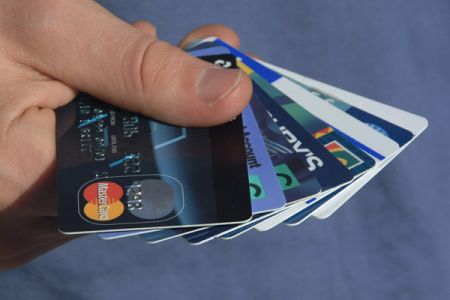Q&A: Detective Chief Inspector John Osibote on chip and PIN fraudsters
We talk to Detective Chief Inspector John Osibote about the DCPCU's recent work on catching four chip and PIN fraudsters who were jailed for 15 years.


The war between law enforcement agencies and fraudsters has been escalating since the dawn of the technology dependent age we now live in.
As criminals get more tech savvy, the police have to keep up with the game and it can prove a long and difficult process.
But there are crime fighters out there doing a fine job in dealing with ever-evolving threats, as epitomised by the Dedicated Cheque and Plastic Crime Unit's (DCPCU) recent work that led to the sentencing of a card fraud gang for a total of 15 years.
We spoke to Detective Chief Inspector John Osibote, who leads the DCPCU, about catching the crooks.
How did these criminals end up getting caught?
Essentially, it was due to the fact that we were receiving reports of PED [PIN Entry Devices] machines were being tampered with and some of the reports alluded to petrol stations where PEDs had been compromised.
A lot of our work is based on intelligence and the goodwill of people to pass on compromises that they see, or suspicions.
Get the ITPro daily newsletter
Sign up today and you will receive a free copy of our Future Focus 2025 report - the leading guidance on AI, cybersecurity and other IT challenges as per 700+ senior executives
Were there various sources of help or numerous?
It was various. It was probably mentioned in open court about the fact that there were various petrol stations involved.
Certainly, in terms of the method of operation that was used for the bypassing of the tamper switches in electronic circuit boards, it was quite easy for us to realise that there was a pattern and it was the same organised crime group behind the actual compromise of the PEDs.
Is this a unique case or part of a trend that you have seen in recent times?
It is a unique case. We can say there is a lot of confidence that the issue that was highlighted here has been eradicated.
What I'd like to add ... is that as long as the public, and they have been doing their best to be vigilant in terms of ensuring they conceal their PIN numbers and any other security advice that is given, play their part, then obviously the DCPCU and our partners, that is the banking and the retail sector, can do ours as we have done in this instance.
In this instance, the general public would have been oblivious as the actual PEDs were compromised internally.
Since we have apprehended this gang with regard to this method, we haven't had a repetition, so we are confident the problem has been eradicated.
Since it was set up, the DCPCU has prevented an estimated 340 million in card and cheque fraud losses. Has there been any indication about how much you prevented from being lost in this case?
That is still to be calculated. We are in the process of doing that, so obviously if we were to release a figure we would want to be confident that it is truly reflective of the potential savings or the actual fraud that was perpetrated.
Tom Brewster is currently an associate editor at Forbes and an award-winning journalist who covers cyber security, surveillance, and privacy. Starting his career at ITPro as a staff writer and working up to a senior staff writer role, Tom has been covering the tech industry for more than ten years and is considered one of the leading journalists in his specialism.
He is a proud alum of the University of Sheffield where he secured an undergraduate degree in English Literature before undertaking a certification from General Assembly in web development.
-
 Bigger salaries, more burnout: Is the CISO role in crisis?
Bigger salaries, more burnout: Is the CISO role in crisis?In-depth CISOs are more stressed than ever before – but why is this and what can be done?
By Kate O'Flaherty Published
-
 Cheap cyber crime kits can be bought on the dark web for less than $25
Cheap cyber crime kits can be bought on the dark web for less than $25News Research from NordVPN shows phishing kits are now widely available on the dark web and via messaging apps like Telegram, and are often selling for less than $25.
By Emma Woollacott Published
-
 FBI warns scammers are using cryptocurrency ATMs to siphon cash
FBI warns scammers are using cryptocurrency ATMs to siphon cashNews Criminals will stay on phone with victims as they make payments, says advisory
By Danny Bradbury Published
-
 Hackers fake DocuSign and offer fraudulent signing methods
Hackers fake DocuSign and offer fraudulent signing methodsNews Criminals impersonate the e-signing company to steal credentials
By Rene Millman Published
-
 Account takeovers rise nearly threefold during pandemic
Account takeovers rise nearly threefold during pandemicNews Financial services hit hardest by account hijackers, says Sift report
By Danny Bradbury Published
-
 Cyber criminals leak one million credit cards on the dark web
Cyber criminals leak one million credit cards on the dark webNews Among the stolen hoard are customer details from US and Canadian banks
By Rene Millman Published
-
 SentiLink raises $70 million for its identity verification platform
SentiLink raises $70 million for its identity verification platformNews SentiLink’s ID Theft Score helps businesses combat synthetic fraud
By Praharsha Anand Published
-
 Content fraud levels continue to rise in 2021
Content fraud levels continue to rise in 2021News The pandemic has ushered in a new level of scams and misinformation
By Danny Bradbury Published
-
 What is DMARC and how can it improve your email security?
What is DMARC and how can it improve your email security?In-depth Protect your customers and brand rep with this email authentication protocol for domain spoofing
By Gabriella Buckner Published
-
 FTC warns of rising cryptocurrency fraud
FTC warns of rising cryptocurrency fraudNews Marked rise in cryptocurrency losses began just as pandemic took hold
By Danny Bradbury Published